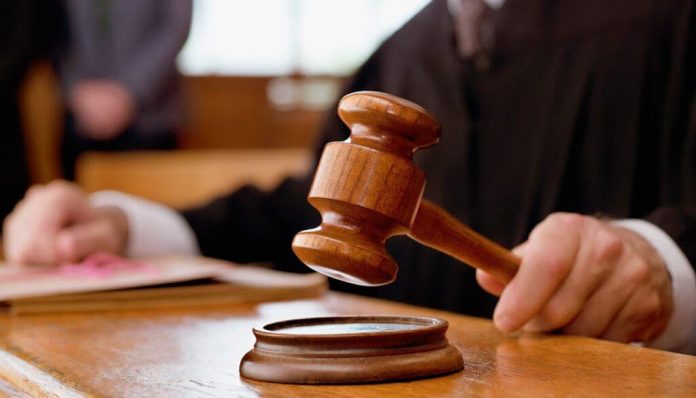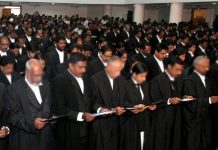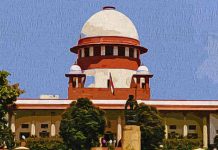This article has been written by Oishika Banerji, an undergraduate student of Amity Law School, Kolkata. This article deals with the several ways adopted to make practice as a young lawyer at Supreme Court or High Courts.
Introduction
Every year a good number of law graduates join litigation as a professional choice. One of the traditional choices for law graduates is litigation. The Bar Council of India governs the appointment of the advocates in the Supreme Court of India whereas it is the State Bar Council that looks after the similar procedure in case of High Courts under the Advocates Act, 1961. A litigation career for young lawyers who have just graduated from universities after a three year or a five-year course is like a fish in the bowl which when poured into the ocean has no boundaries and limitations.
Therefore in such a case the lawyer should either be well off financially or must have guidance in the form of a senior advocate to provide a direction to him or her. Without one of these, it indeed becomes difficult for any young lawyer to be successful in practising in the Supreme Court of India or any High Courts. The legal profession is filled with odds more than even, therefore there arises a necessity for an experience which can safeguard the lawyer from odds arising in the profession. Although corporate jobs are overtaking litigation in the professional grounds for fresh graduates, the urge to wear the black robe and carry out arguments thereby remedying injustice for their clients is something that one cannot get over. Although the litigation practices among the younger generation are less yet it is not absent completely.
How to make practice as a young lawyer at SC/HC
For any young lawyer who desires to practice in the Supreme Court of India or High Courts, the path to the same is not an easy one. There are parameters for both the Supreme Court and the High Courts that are meant to be followed before being able to practice in the same.
High Court
Any person who has graduated in law, having a three year or a five-year degree, can practice as an advocate in any High Court across the nation. The initial step that is involved in this journey is to be registered with the State Bar Council and appear for the All India Bar Council Examination within two years of being registered with the State Bar Council. Without qualifying in the examination, it is not possible for a young lawyer to carry out his or her practice.
Supreme Court
In case of a young lawyer practising in the Supreme Court of India, he or she should be a practising Advocate on record for a year. It is in the Certificate of Practise and Renewal Rules, 2014 issued by The Bar Council of India that lays down the conditions that are needed to be taken into concern only after which an advocate can be enrolled in the Supreme Court of India and practice thereafter. The conditions are provided hereunder:
1) For the young lawyers who are about to be registered at The Supreme Court of India, the requirement is a post qualification experience of about 5 years which must be inclusive of 3 years of litigation practice in the trial court and 2 years of the same in any High Court. Only after this, the lawyer is supposed to appear in training conducted by the Advocate on Record.
2) The examination conducted by the Board of Examiners under the regulation and governance of the Supreme Court must be taken by the individual with the experience provided above. On clearance of the examination, the lawyer is supposed to hold a registered office which must be located within 10 miles from the Supreme Court’s location. The office must be accompanied by a registered clerk.
The detailed structure of the examination
The examination that takes place for the enrolment of lawyers in order to let them practice where there is not an easy one to crack. The details of the examination have been provided below:
1) The examination is of a duration of 3 hours.
2) The structure of the examination is that the same has been divided into 4 different papers that are to be conducted in four different days.
3) It is a 100 marks paper consisting of 27 questions divided into four papers.
4) 50% marks are required in each paper along with 60% of aggregate marks for the candidate to qualify in the examination.
5) An option of reappearing in the examination specifically on one paper exists for those candidates who have secured 60% marks in aggregate but have failed to secure 50% marks in respective paper. Examination fee needs to be paid accordingly.
6) Similarly, if the candidate has obtained 50% marks in the papers but in aggregate failed to secure 60% marks then the option of rewriting the paper is available for any one of the four papers of the candidate’s choice. Examination fee needs to be paid accordingly.
7) The chances of a candidate to appear in the examination are five.
Syllabus
The syllabus of the examination that is divided into four papers is-
a) Practice and procedure of Supreme Court – This paper will consist of the relevant provisions of the Indian Constitution, 1950 provisions related to the court’s jurisdiction, the Civil Procedure Code, 1908 Limitation Act, 1963 and Court Fees Act, 1870.
b) Drafting – Drafting is an important skill that every lawyer practising in or outside the court must be aware of. The Drafting paper includes a special leave petition, review petition, transfer petition, the petition of appeal, application of revocation of special leave and other necessities.
c) Advocate and Professional ethics – This paper ensures that the candidate must possess the knowledge of ethics involved in advocacy. This paper is inclusive of the Advocates Act, cases concerning contempt of court, Supreme Court Rules, Bar Council of India Rules.
d) Leading cases – For any lawyer to be enrolled as a practising litigant in any court, it is necessary to be aware of landmark judgments and cases to gain knowledge of implication of statutes in a realistic world. The paper includes those cases which led to the change in any statute by means of amending, scrapping out or adding provisions to the same.
Those candidates who will be successful in cracking the Advocates on Record examination shall be assigned as Advocates on Record and shall hold the authority of filing cases for the clients that approach him or her exclusively.
Present scenario
The Bar Council of India has recently informed the Supreme Court that qualifying the All India Bar Examination will not be sufficient enough for any young lawyer to practice directly in the Supreme Court of India or any High Court across the nation right after graduating with an LLB degree. Along with the exam qualification, an experience of practising in the lower courts is essential to practice further in the higher courts. The Bar Council of India is about to release a new set of rules where a minimum of 5 years of lower court experience is required to practice in the High Courts. Further, there arises the necessity of renewing the certificate of approval released by the State Councils every five years to continue practising in the relevant court. An application for the renewal must be filed six months prior to the expiration of the certificate. Currently, every advocate is allowed to appear to the Supreme Court of India but the authority to practice and argue on behalf of his or her client is vested only on the Supreme Court’s Advocate on Record.
Independent law practice
Young lawyers who are fresh graduates with an LLB degree can carry out independent practices. Although there are a lot of hurdles associated with the same, several young lawyers go for this independent practice. Independent practices denote practising alone without any senior helping out. Often what is seen in this case is the lawyer has to go through ups and downs to be stable in the legal field. The essence of going independent for any young lawyer is for the consideration of money. Whenever one is working under a senior advocate or a recognised judge, he or she has to follow the guidelines laid down by that very advocate and when it comes to payment, the junior receives a very less amount in return that turns out to not be satisfactory. A self processed way of carrying out litigation is a more divergent field compared to be working under any senior. The advice given to self by self can be categorised as the best advice any individual can ever have. Mistakes committed in the journey acts as a precedent for the future to avoid such mistakes. But the essential elements that are necessary for independent work field are:
1) Experience: It takes time to gain experience and it also takes time to use that experience in the work-life. In law, the experience is everything for the more experienced one will be the better he or she can handle the case and the client.
2) Brand Value: Although the term brand value is associated with products and services, the same is also associated with a lawyer. For any young lawyer who is set out for providing service to his or clients by remedying injustice. It is only through the brand value that clients reach out to the lawyers to fight for them. If one is working under the senior advocate who already has a recognition, then searching for brand value is not required. But for any independent lawyer, it is essential.
3) Networking: For lawyers, networking is essential to seek clients and look for variation in the professional field. Connections are required for those who are new to the field and are not much aware of the atmosphere. Networking helps in knowing the pros and cons of carrying out practices, increasing client contacts and overall development.
Issues faced by young lawyers practising in SC/HC
The legal field has a lot of competition as well as politics associated with it. Young lawyers can only go for practice in High Courts and Supreme Courts after passing several conditions and carrying experience of lower courts along with them. It is not an easy task to achieve and profess. After entering in the profession also there are several challenges that the lawyers of the younger generations have to face. Some of the issues that are common to all young lawyers in practice are:
1) Economic issues: The only source of income for a lawyer practising in the court is through their clients. In the litigation world, big players with financially strong backgrounds, recognition and demanding brand value are already existing. In such a case, it becomes difficult for young lawyers to adjust and survive in such an atmosphere.
2) Legal issues: Indian laws are vast and old. There have been several amendments in several statutes but yes the fact that loopholes continue to exist cannot be ignored. The young lawyers who are freshly graduated from the law schools are supremely educated ones in the legal field compared to those who are already practising. Conflicts arise when the former disagrees with the latter. The youth aims to bring in a change in the legal system. Adjusting and applying the existing worn outlaws becomes difficult for these young lawyers.
3) Social issues: Often it becomes difficult for young lawyers to understand long-existing social problems in the nation. This is because they all are very educated to understand the same. This becomes a major problem in carrying out litigation procedures for the young lawyers for a number of cases arising out of social disorders.
Conclusion
Young lawyers have a lot of energy, knowledge and willingness towards the profession. These traits if given proper direction can be the real holders of the Indian Judiciary someday. Possibly because of this reason, The Bar Council of India has thought of setting a parameter of experience to be enrolled as a practising lawyer in the Supreme Court and the High Courts.
References
- https://www.barandbench.com/columns/litigation-columns/establishing-an-independent-law-practice-a-guide-for-young-lawyers
- https://www.legallyindia.com/the-bench-and-the-bar/new-supreme-court-practice-rules-ban-five-year-juniors-20141111-5294
- https://www.quora.com/How-do-I-become-a-high-court-lawyer-directly-after-a-5-year-integrated-LLB
- https://www.legallyindia.com/the-bench-and-the-bar/bci-s-latest-youngster-practice-rules-bring-5-years-lower-court-experience-to-hc-5-years-in-hc-to-sc-20151123-6885
- https://lawsisto.com/legalnewsread/MjAyMw==/Legal-Aid-Purpose-Is-Not-To-Provide-A-Platform-For-Young-Lawyers-Gujarat-HC
- https://www.lawctopus.com/litigation-career-option-india/
- https://timesofindia.indiatimes.com/city/guwahati/Young-lawyers-facing-multiple-challenges-Supreme-Court-judge/articleshow/13112646.cms
LawSikho has created a telegram group for exchanging legal knowledge, referrals and various opportunities. You can click on this link and join:
https://t.me/joinchat/J_0YrBa4IBSHdpuTfQO_sA
Follow us on Instagram and subscribe to our YouTube channel for more amazing legal content.
 Serato DJ Crack 2025Serato DJ PRO Crack
Serato DJ Crack 2025Serato DJ PRO Crack










 Allow notifications
Allow notifications


